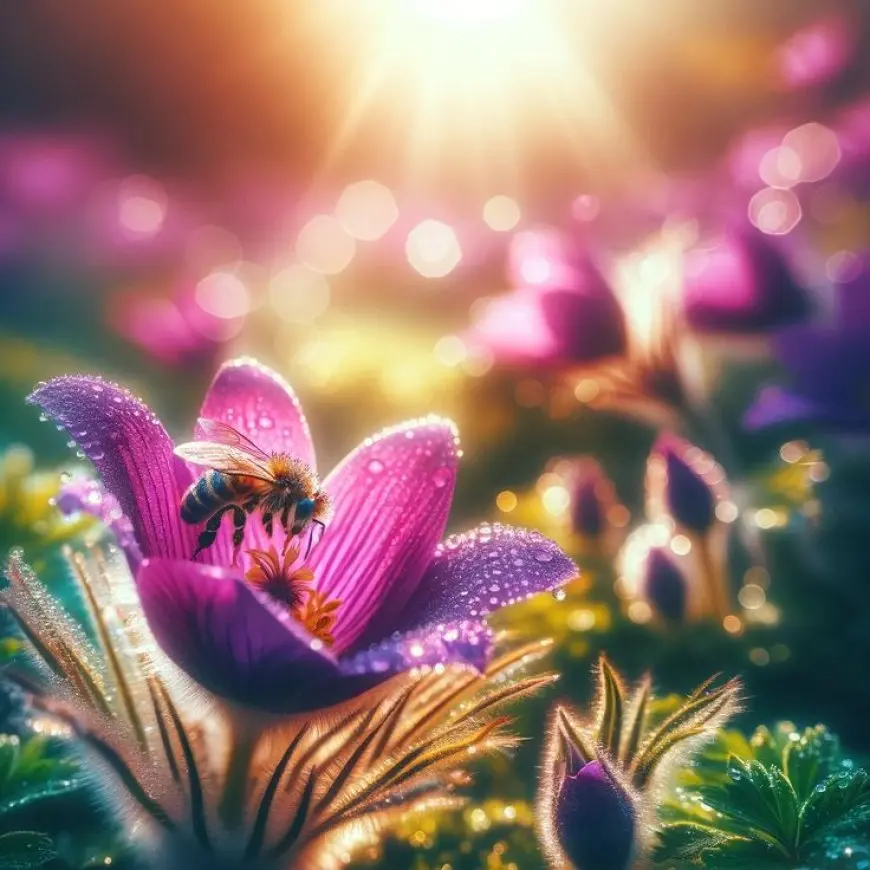The Importance of Pollinators in Nature
The Importance of Pollinators in Nature

Pollinators are essential to the survival of many plants, animals, and ecosystems. They play a crucial role in the reproduction of over three-quarters of flowering plants, including many crops that humans rely on for food. These creatures, ranging from insects to birds, bats, and even the wind, facilitate the transfer of pollen from one flower to another, enabling the fertilization process that results in seeds, fruits, and new plants. Without pollinators, the world as we know it would be drastically different, with much less biodiversity and fewer food options.
The Role of Pollinators
Pollination is the process through which pollen from the male part of a flower is transferred to the female part of the same or another flower. This allows fertilization to occur and the plant to produce seeds, which are essential for the continuation of plant species. Pollinators facilitate this process by visiting flowers to collect nectar or pollen for their own food. As they move from flower to flower, they transfer pollen, thus helping plants reproduce.
While some plants can self-pollinate or rely on the wind for pollination, the majority of plants depend on animals to carry out this vital task. The most well-known pollinators are bees, butterflies, and moths, but many other insects, such as beetles, flies, and wasps, also contribute to pollination. Birds, especially hummingbirds, and mammals like bats are also important pollinators in certain ecosystems.
Why Pollinators Are Vital to Ecosystems
Pollinators are integral to the health and stability of ecosystems. Many of the world’s food crops, such as fruits, vegetables, nuts, and seeds, rely on pollinators to thrive. Without them, the production of these crops would decrease dramatically, resulting in less food for humans and animals alike. Pollinators also help maintain the genetic diversity of plants, which is important for creating resilient ecosystems.
In addition to their role in food production, pollinators contribute to the survival of plants that provide habitat and shelter for other wildlife. These plants support a variety of animals, from herbivores that feed on leaves and seeds to predators that rely on those herbivores for food. When pollinators are at work, they help sustain a balanced and thriving ecosystem.
Pollinators and Agriculture
In agriculture, pollinators are not only responsible for increasing crop yields but also for enhancing the quality of crops. Many of the foods we rely on, such as apples, almonds, coffee, and tomatoes, are made possible by pollination. Without the help of bees and other pollinators, these crops would become much less abundant and more expensive. For example, bees are responsible for pollinating a wide variety of fruit trees and vegetable plants, including those that produce berries, citrus fruits, and squash.
The pollination process also leads to the production of seeds, which are necessary for growing new plants. This helps farmers produce seeds for the next planting season, ensuring the continuity of food production. The relationship between farmers and pollinators is therefore mutually beneficial, as healthy pollinator populations help ensure that farms remain productive and profitable.
Threats to Pollinators
Unfortunately, pollinator populations are facing numerous challenges. Habitat loss, due to urbanization and agricultural expansion, is one of the most significant threats to pollinators. When natural habitats such as wildflower meadows and forests are destroyed, pollinators lose the food and shelter they need to thrive. Pesticides are another major threat, as chemicals designed to kill pests can also harm beneficial pollinators, such as bees and butterflies. Climate change also disrupts the timing of pollination, as warmer temperatures may cause flowers to bloom earlier or later than usual, affecting the availability of nectar and pollen.
In addition to these threats, the spread of invasive species can further harm pollinator populations by competing for resources or directly preying on native pollinators. The decline of pollinators has serious consequences not just for food production but also for the health of ecosystems around the world.
How to Protect Pollinators
Protecting pollinators is crucial for maintaining healthy ecosystems and ensuring food security. There are several ways to help support these vital creatures:
- Plant pollinator-friendly flowers: Grow a variety of native plants that produce nectar and pollen. Wildflowers, shrubs, and trees like clover, sunflowers, and lavender are excellent choices for attracting bees and butterflies.
- Reduce pesticide use: Avoid using harmful chemicals in gardens and on farms. Opt for eco-friendly pest control methods that do not harm pollinators.
- Create pollinator habitats: Support the creation of green spaces, such as community gardens or wildflower meadows, where pollinators can find food and shelter.
- Protect natural habitats: Advocate for the preservation of wild areas and forests that serve as homes for pollinators. These ecosystems provide vital resources for pollinator populations.
- Support sustainable agriculture: Encourage farming practices that protect pollinators, such as crop rotation, organic farming, and the use of integrated pest management techniques.
The decline in pollinator populations is a serious concern, but there is hope. Increased awareness about the importance of pollinators has led to a growing number of initiatives and programs focused on pollinator conservation. Governments, environmental organizations, farmers, and individuals can all contribute to protecting pollinators and ensuring their continued survival.
By taking action to preserve their habitats, reduce harmful practices, and raise awareness about their vital role in nature, we can help ensure that pollinators continue to thrive for generations to come. The health of our ecosystems, agriculture, and food supply depends on it.







